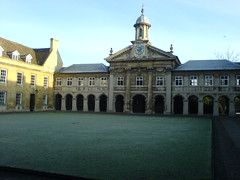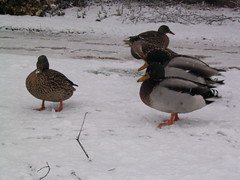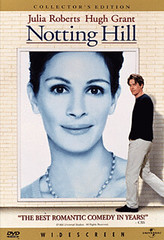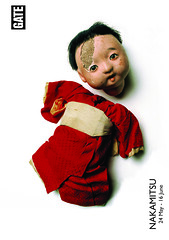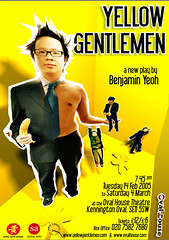To write a play
What do you need to start a play?
This can’t have a right answer.
I’m trying to sort out my ingredients before writing a first draft of some thing I’m thinking about. I’m prevaricating.
It could mean I’m not ready. Or a bit lazy. Or it’s part of my process.
So, I decided to pontificate more and see if I had enough ingredients.
All you probably need is character. Perhaps just one. Some would argue for a “theme”.
Craig Mazin argues
1. The theme.
2. The plot.
3. The characters and their arcs.
4. The key sequences and their purpose within the plot and theme.
5. The temporal structure of the story (what happens when and how far along).
are the ingredients needed.
Someone argued to me, all you need is emotional beats and arcs. Quite how you get them without everything else, I’m not sure.
Some times I have a key image or phrase.
Anyone have any key ingredients for them?
Little Tree
When I went back to Emmanuel, I went to say hello to a little tree. We planted in memory of my friend Nadia Rajan, who died when I was at college. It was good but sad to remember.
I’ve seen literally the last breaths of two people.
In Greek and Roman time average life expectancy was about 28. In 1900 it was 40 – 50. Today, in the West, it’s 77-81.
We go face to face with death so rarely now in the developed world.
The theatre of Shakespeare’s time was much more in tune with death and gore and so was the audience. Now we see it comic book style in the movies or really not at all. Should our theatre today be more in touch with death as well as life? Should our society? Maybe that’s one reason we have such a strong reaction to Sarah Kane.
It was painfully sad but I’m glad I could be there to see the final time Nadia and my father breathed a breath. Perhaps more for me, than for them. Grief is for the living more than the dead. We must all end and if we can do so, watched and beloved, then we are all the richer for it.
ES theatre awards
It’s of note that most of the ES Theatre Awards went to commercial plays (see below). Not only that, but the best newcomer is the Menier, which is geared also to commercially viable work.
This is one argument perhaps that the pressures of commercial theatre, actually does produce some of the best work and not the subsidised sector… however it’s also of note that most of the winners started off in the subsidised area…
Maybe that’s how it is. The subsidised areas provides the training ground and spring board for people to leap into the commercial world.
It’s the same in Big Business R&D, in the sense that universities often provide the basic research for free (ie subsidised by government) before business takes it, develops it and commercialises it.
Best play
The Home Place, by Brian Friel
Best actor
Simon Russell Beale, for The Philanthropist
Best actress
Harriet Walter, for Mary Stuart
Sydney Edwards award for best director
Michael Grandage, for Don Carlos and Grand Hotel
Best designer
Bob Crowley, for Mary Poppins
Milton Shulman award for outstanding newcomer
Menier Chocolate Factory
Charles Wintour award for outstanding newcomer
Nell Leyshon for Comfort Me With Apples
Special award
Royal Court for “making and changing theatrical history this last half-century”
Casting Yellow Gentlemen
We’ve cast the play! It was a trauma finding the actors. However, very interesting seeing how the actors interpret your words and seeing your characters come to life and take on a life of their own. Out of your hands. Wow.
Actors complain there are not enough good roles written for them.
(female roles, old people, non-white etc.)
But when you do write non mainstream non-white Caucasian roles, you find there’s no one who can or wants to play them!
Who should be the leading light? Actors blame the writers. Writer blame the commissioners, theatres and producers. Theatres blame the audience.
The audience just want a good play and story and don’t care where it comes from?
Back to Cambridge
I went back to Cambridge last week thelp with the interview process for a scholarship to Harvard (the Herchel Smith) that my college, Emmanuel offers.
I was an Herchel Smith scholar a few years ago. I had a wave of nostalgia back at Emma. People talk about nostalgia as a powerful feeling but I’ve not often hit me as such. University is a crazy, influential, melting pot of a time that it’s only to be expected to conjure up such feelings.
It was good to see my old lecturer and supervisor, who taught me “Learning and Memory” as part of Experimental Psychology. He is a brilliant teacher and a delightfully charismatic person – he was a major reason for me doing so well in my final year.
The Emma ducks still waddled across the grass. It started to snow. The swirling flakes danced straight out of a movie.
In the applications and interviews, one aspect that struck me was the ferocious intellect and scholarship present. (Both in the candidates and the interviewers.) For all the arguments that you can lay at Cambridge’s feet – elitism, cronyism and other negatives – it does foster intellectual, strong, determined, unique individuals.
Maybe this is one of the reasons a number of directors and actors emerge each year from Cambridge and go on to be successful at a world or national stage even though Cambridge offers no real official instruction in drama.
Yes, there may well be cronyism as well and despite my science training and background, I do wear a Cambridge badge amongst others so my thoughts must be subject to bias. Still, I contend there is something about its atmosphere that helps breed amazing people.
St Paul, fringe theatre blog
Maxie Szalwinska, who keeps a blog here, has just started a fringe round up for the Guardian and contributes to their culture vulture blog. Give her ideas and let’s support her.
She has a post about the audience’s reaction to Paul, the new Howard Brenton play at the National. Billington review here.
Billington writes:
Brenton springs a dramatic surprise late in the play. As Paul awaits death in a Roman prison in AD65, he is confronted by seemingly incontrovertible evidence that his conversion was based on a lie: that Christ survived his crucifixion, did not rise again, and was not the Son of God. As Paul says, “If Christ has not been raised, then our preaching is without substance and so is our faith.”
Brenton’s point is that Christianity is based on an unfounded myth.
Regardless of the controversy, a play exploring faith is intriguing. We all live by various degrees of faith and examining the Christian one – one of humankind’s strongest – through fiction and story is important. An examination of faith. It needs to be done more often, I think.
Whether that is the faith in religion and why we do things in the name of religion or God. Eg a crusade or a jihad.
Or faith in science and why we do things in the name of scientific progress or not.
(see here for story about stem cell researcher and the ethical controversy surroding his reserach ova)
Yellow Gentlemen
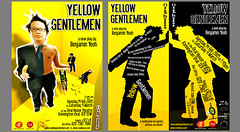
Flyer & poster for Yellow Gentlemen
Flyer (right hand side) and poster design for my play, Yellow Gentlemen, at the Oval house 14 Feb – 5 Mar, 2006.
Any comments?
Notting Hill & Structure
I was thinking about film, which I don’t do too often but find myself doing more and more. It struck me that many films (and perhaps plays too but maybe not so obviously/extreme) use the
“best thing to happen —> worse thing to happen —> best thing to happen —> worst” event structure.
This structure can be quite satisfying. It goes, what is the best thing that can happen to X at this moment. Now X has happened. What Y is the worst thing to happen.
eg The girl calls. Your flat mate loses the number. You find the number and get on date. You finally get invited to the hotel room by the girl. You go up, and the boyfriend you didn’t know exists is suddenly there…
Convinced by the Girl to watch Notting Hill, I was aware of this strucutre.
The film obviously falls in to
“boy falls for girl, out of his league” style
Boy is losing money in bookshop (bad thing)
Beautiful Girl enters shop (good thing)
Boy fails to impress/[Thief tries to steal] (bad thing)
Girl buys book (gd)
Boy fails to make impression (bd)
Boy meets girl again (gd)
Boy spills coffee on girl (bd)
Girl agrees to clean up at boy’s house (gd)
Boy’s house is very untidy, boy flounders, girl leaves (bd)
Girl comes back and kisses boy (gd) **
Girl goes away and boy has no way of getting in contact (bd)
Girl rings and leaves msg (gd)
Flat mate messes it up (bd) etc…
You can reconstruct this in to the traditional linear, obstacle structure, but what struck me about Notting Hill and the bad-good-bad is that I some how suspended some of my reasoning power.
**Why on earth does the girl kiss the boy? It does not really make sense except it’s a rom-com and fits our genre conceptions and it also fills the bad/good/bad structure. She’s just left, something good needs to happen….
Others have pointed this structure out, but I was amazed about how satisfied I was by the good/bad rhythm. I even enjoyed the film. Or maybe that was the wine and the Girl.
Cheek by Jowl work placement
Cheek by Jowl was founded (in 1981) by Declan Donnellan and Nick Ormerod.
They’ve done great work, Declan as director
“At the theatre we keep our eye on extremities that might engulf us. In an act of theatre you assemble eight or nine hundred people in a space, then together you touch these dangerous feelings vicariously.”
Nick as designer
“Theatre is very pragmatic. It’s no good coming in with a vision and thinking you’re going to realise something purely from your own mind, because the process of working with people makes your vision change.”
“One of the essential things about Cheek by Jowl is that it’s collaborative. It always puzzles me when designers tell me they would never enter into a discussion with an actor, that they’d just tell them what they will be wearing.”
They live together. I wonder what dinner is like after a hard day’s rehearsal.
Still, it would be a great place to gain work experience and they are currently looking (see below), so if you fancy it or know of some one who would, drop them a line.
***
Cheek by Jowl is seeking to fill a 3 month work placement in its administration
office from January 9th – March 31st 2006.
The position is 3 days a week, unpaid, but with local travel expenses.
This is an ideal opportunity for someone looking to gain entry level experience in
arts administration.
Candidates should be confident with Word, Excel and Outlook and previous
experience of working in an office environment would be beneficial.
Please apply with your CV and a covering letter to:
Cheek by Jowl, Barbican Centre, Silk Street, London EC2Y 8DS
Or by email to: info@cheekbyjowl.com
Only candidates with a serious and proven interest in a career in Arts
Administration need apply.
Deadline for applications: Monday 28th November
For more details please go to: http://www.cheekbyjowl.com
Monster, miniature and collaboration.
David Farr, recently artistic director of the Lyric, discusses the pros and cons of “big” and “small” plays, with some arguments against a “monster” playwright.
“It can be argued that the solo-written play is at its best when it is miniaturist. No modern play has taken me further into the human condition than Harold Pinter’s The Caretaker, in which three actors never leave one shoddy room.”
On the other hand,
“But then look at Brecht. Brecht had to write big. From the first moment he wrote sprawling, imperfect, magnificent epics. So did Shakespeare.”
Farr then goes on to argue for the collaborative nature of theatre. And that collaboration bears the best theatrical fruit. He cites Kneehigh theatre – Cornish collective – as a good example.
Complicite, Improbable, Shared Experience would be others in this mould.
Emma Rice, artistic director of Knee High argues
“I am passionate about the collective imagination – that you can create more together than alone.”
And that conventional British Theatre has trouble understanding the way Kneehigh works.
I’m not sure I’d go that far. When I first came to theatre (and from what I can tell most people’s experience of theatre) my impression was that it is immensely collaborative. There was and is a feeling that without everyone being involved the piece would not come together. I think theatres do understand that. However, they are often unwilling to take a large risk.
Knee high may approach a theatre with only a “skeleton” of a script. A theatre can understand how kneehigh works but also be scared by the fact, they don’t know what is going to come out of the process. It may not work.
Another interesting comment in the article is Rice’s proposition that
“Audiences are much more visually literate than aurally or linguistically literate these days.”
And thus Farr’s attempt to draw a “young audience who have a phenomenal visual sophistication and relatively little literary sophistication” and his conclusion:
“What theatre needs to survive is original, provocative and innovative story-telling. How you tell the story – the puppetry of Shockheaded Peter, the hi-tech video of An Elephant Vanishes, the collective bravura of Kneehigh, the solitary brilliance of Harold Pinter or David Harrower – is a personal choice with specific needs and consequences. There are an infinite number of ways of making new work in the theatre. It’s a bastard form. That’s what makes it so great.”
I would add that the choice in making the work becomes a crucial part of what makes the theatre great. If telling the story isn’t interesting in theatre then why don’t people tell the story on tv or film. In fact, many more stories perhaps are being told in tv and film and to keep theatre relevant it needs stories and telling, which tv and films can’t do.
Bruntwood Playwriting Competition: major prizes!
I’ve mentioned this before, but the details are now out about the The Bruntwood Playwriting Competition for the Royal Exchange.
It’s an amazing opportunity for budding playwrights. It’s completely anonymous so you’ve got just as good (or bad) as chance as anyone else.
There are a few rules eg piece original and unperformed, you have to be over 18 and living in the UK/Ireland, but not many.
£15,000 as a First Prize, a Second Prize of £10,000 and Third Prize of £5000. There is also a Regional Award for those living in the North West (£5000), an Under 26 Award (£5000), and a bursary for a promising writer to have a year’s residency at the Royal Exchange Theatre. In addition to the prize money, the winning play or plays should be produced as part of the Manchester International Festival.
Download the application form here.
Download the playwriting pack here.
I hope to enter something. If you’ve needed some incentive to get writing, this could be it.
The deadline is 30 April 2006.
Unicorn Theatre for children
The Unicorn theatre is to open soon.
Michael Morpurgo writes about the good work in children’s theatre here.
From December 1, England will have “its first purpose-built professional children’s theatre” [Ed: See Hana's comment - quote is from Guardian. Egg in Bath was built first.]
The Unicorn Theatre is moving to a new space in Tooley Street in Southwark. It began life modestly as a travelling theatre, its founder Caryl Jenner touring the country in an old civil defence van. It started in 1947 and the journey to Tooley Street has been a long time in the making. But here it is: a 300-seat theatre, a small studio theatre, proper rehearsal space, and a potential annual audience of 100,000 a year. It’s taken £13m and a lot of faith and determination to get this far. [Ed: See hana comments again]
Keith Williams were the architects. Not for once, the great Haworth Tompkins of Royal Court and Young Vic fame [and Egg in Bath]. KW has had theatre experience as I believe KW had a hand in the Birmingham Rep theatre, Orange Tree in Richmond, as well as the Kebehavns Philharmonic Hall in Denmark and other projects.
Now we have a “national” [Ed: see Hana] children’s theatre and a National theatre of Scotland (although without a building); do the arguments becoming more compelling for a “black” theatre? See previous posts and current consultation by the Arts Council.
Aside from the politics, it’s great to see a children’s theatre. Tony Graham, the artistic director, is launching the new theatre with In the Box for younger children and, for older folk, Tom’s Midnight Garden, by Philippa Pearce.
Cleansed: Review
Treat old plays like new and new plays like old.
I think treating new writing with the same critical respect as Ibsen or Shakespeare and treating Ibsen with the same freshness as a new work, will generally pay dividends in a production.
Sarah Kane’s Cleansed, directed by Sean Holmes, at the Arcola has been treated with respect. A very concerted effort to get to the heart and soul of the play.
Still, Billington can not be reconciled to Kane’s vision.
Where as Maxie Szalwinska thinks it “comes close to achieving the cathartic effect of Greek tragedy….” and “it’s about the capacity to feel, gnawing need and the annihilating power of love”
It’s an ambiguous institution and the shadowy “doctor” Tinker seems to be running “cures” and experiments. Torturing people. Testing the bounds of what people will and won’t do for love.
In the power of the nameless institution, Tinker scissors off tongues, chops off limbs, mutilates genitals and causes his subjects no end of pain, embarrassment, cruelty and boredom. This is reflected in what the audience feels viscerally. I saw cringing. I saw yawns. [Slowly making someone eat a box of chocolates intended for their loved one becomes almost visual art – painful, embarrassing, cruel, boring].
Yet, juxtaposed and intertwined with these sanctioned acts of violence are moments of love and tenderness. All the characters have their moment of tenderness; kisses, touches, sex, dancing, all the things which can rebel against cruelty.
Kane writes in to her play, a moment where flowers are meant to blossom on stage. The projected images are pale imitations of the power of that image.
Imagine: this dark, tortuous institution suddenly ablaze with blooming flowers.
That for me is the central image of the play.
Where there’s darkness and violence and torture and cruelty, there’s still love and tenderness and dancing and reaching out.
“I love you now. I’m with you now. I’ll do my best, moment to moment, not to betray you. Now. That’s it. No more. Don’t make me lie to you.”
Kane does not explain it. She simply shows this vision. The actors and director perform brilliantly to bring this vision to life.
It’s not an easy play. Most won’t “like” it. Probably many wouldn’t enjoy it. However it offers a vision of the world and our place in it that makes us stop and think. Some will leave the play, somehow different than before the play began and I suppose that’s what good art does.
At the Arcola Theatre until Dec 3rd – 020 7503 16 46 (box office)
Safety vs. Freedom
Kitty Ussher argues fairly persuasively that MPs who voted against the 90-day detention for terror suspects made Britain less safe.
Or rather, it has made it no more safe than it was 6 months ago.
Ussher is probably right.
However, it has kept Britain more free.
How does one weigh up safety vs. freedom?
Ussher’s column comes across as polemic as she never argues the case for the other side.
In the theatre, there’s sometimes the same balance between safety and freedom, whether this is between supporting a star vehicle west end show or a piece of political fringe. I’m not judging where that balance should be, only that there is a balance.
Most rights have competing rights (eg privacy vs. freedom of the press) and our MPs would do well to remember both sides of the case.
Coram Boy: Review
**Possible mild Spoliers**
Otis takes babies and cash off desperate mothers, promising to deliver them to the Coram Foundling Hospital in London. Instead, he murders them to the helpless horror of his mentally ill son, Mish.
Alex of the great Gloucestershire Ashbrook family loves music above running his fathers estate. He runs away from home, but not before a night of passion with Melissa that leads to a child he doesn’t know. The child is given to Otis but survives thanks to Mish, who takes him to the Coram hospital.
Many years later, the extremely musical orphan boy, Aaron, finds himself apprenticed to a recently returned Alex. Will Alex find out about Aaron, will the Ashbrooks be reconciled and what will happen to all the child thieves?
The play adaptation, from the book by Jamila Gavin, is epic in scope and brilliantly staged. It will appeal to older children as well as to adults. The production is not without flaws and I could nit pick* a few things, but that would be churlish when the whole is such an acessible piece of theatre and great story.
There are magical moments of theatre. Girls are used as actors for boys before their voices break and when Alex comes of age the transition is pure theatre. As is the early use of dolls to evoke babies, then chillingly dug up (and the clever use of the same girl actor to play the younger Alex and Aaron – great job Anna Madeley). There’s singing. There’s atmosphere. There are crowds of people to fill the huge Olivier stage. There are intimate moments.
The story takes us through a whole world (and an evocative, ever surprising set design), and through a whole generation, evoking not only the tragedy and reconciliation of the Ashbrooks but a feeling of the place and time they lived in. The huge disparity in rich and poor and the some of cultural norms.
Coram Boy follows on from the adaptation of Philip Pullman’s Dark Materials, and I think in some ways is more successful in evoking its world and its rules.
The audience enjoyed it, with gasps from the crowd and the concentrated shared silences at momentous points that can only be conjured in the theatre.
Well done to the National and to the directing of Melly Still. Also to the adaptation of Helen Edmunsdon (who makes me jealous as I’d love to adapt some thing like Coram Boy – I like children’s books a lot). If you are looking for a family show with older children, I’d recommend it. It you are looking for a good story, epic in scope and staged accordingly, I’d recommend it as well. Full marks.
At the National Theatre until 4 Feb 2006 Box office: 020 7452 3000
*
OK, I could not quite leave off my critic head. Two thoughts (and note I only saw a preview so there things can only get better) the pacing of the first half was fairly even, more variety in its rhythm would have been welcome. The transition from acting to acting-singing occasionally jarred. It was a good choice to use singers rather than actors who thought they could sing, but does this leave the old problem about strength of acting vs. singing.
Miniaturists
Stephen Sharkey, who keeps a good blog, was a champion of the miniaturists, this weekend past. He writes:
“there’s sometimes virtue in necessity. The word ‘miniature’ derives from the old Latin, for the red paint used by the artists who created those stunning illuminated manuscripts. It’s not about brevity, necessarily, but about taking care over detail. Poets agonise over the briefest line. In music, the likes of Dylan, Jarvis and Morrissey are writers who can thrill with a syllable. So in our miniature plays, we’ll try new ways to please you. To quote Armando Iannucci, there are two golden rules for performance. The first, is always to leave the audience wanting more.”
I liked the whole evening very much.
We saw:
A nightmare version of Australian suburbia
The hopes and fears of Clarence Darrow – American civil libertarian lawyer
A complex confrontation with a would-be witch and royal witch hunter
The epiphany of a brow beaten wife
The meeting of Judas Escariot and (H)ellen “McArthur” on an island
All great miniatures.
One thought is to the restrictions. The plays came in at 15 to 20 minutes (or felt that way). However, I think with stringent editing (some more than others), they could all have come in at 10 to 15 minutes and been all the more powerful for it.
My other thought is to whether a play feels like a piece of a greater whole or a complete piece in itself. I suppose a miniature could be either, but I think I will be more satisfied with those which feel like a complete whole rather than a good piece of a greater whole.
Either way, I fully support the idea. There’s room for the big (monsters) and the small (miniatures) and theatre needs them both – like it needs new and old (See Mark Ravenhill’s arguments in earlier post). Well done Stephen and colleagues.
Dialogue
Danny Stack, a TV writer, whose good blog I’ve recently come across, has argued
…dialogue in your script carries four main functions: exposition, characterisation, subtext and humour.
Exposition: to convey to the audience the key information of the plot and characters
Characterisation: to give characters their own voice and point-of-view
Subtext: because quite often what is being said has an alternative emotional meaning
Humour: no matter how dour or depressing life gets, there’s always room for a little humour
This if for tv or film.
I posit, are we “allowed” dialogue as beautiful or poetic or stylish, if it doesn’t reveal any humour, subtext, character or story? I think in a movie script probably not. And, truth be told, probably not often in theatre scripts either. However some times playwrights can get away with it.
I think we most often see it in a soliloquy. For instance, one can argue the “to be or not to be…” speech reveals nothing [it could maybe reveal a bit of character, but maybe not] yet it is still moving, interesting and perhaps beautiful/poetic.
So maybe can I argue for a fifth purpose in the language of dialogue? If it’s not humour, subtext, character or story but some how beautiful and moving, maybe that’s allowed as no matter how bad life gets there’s always room for something beautiful.
World’s Biggest Diamond
Saw the World’s Biggest Diamond by Gregory Motton [more famous in France than here] at the Royal Court, this week.
A 73 year old writer is dying. He is visited by a 60 year old former lover and her third husband. Over the course of the next couple of days, they pick apart their affair of 30 years ago – with some of the flickering passion perhaps still lingering.
Michael Billington suggests the play is frustrating but that
the acting at the Theatre Upstairs, under Simon Usher’s direction, is wonderful. Neither Jane Asher nor Michael Feast look nearly old enough for the characters.
But Asher beautifully shows the woman’s glacial facade slowly thawing out of concern for her dying lover and from memories of lost happiness: her sudden smile on the recollection of ice cream getting into her eye hints at her long-suppressed tenderness. And Feast lends the solipsistic old recluse, who feels we are “all alone with God in this nasty dead universe”, a neo-Beckettian bitterness. Acting as good as this makes me forgive the hermetic nature of Motton’s writing.
I wasn’t moved by the play or the acting. Part of this was the fact the actors did not to me embody a 60 year old woman or a 73 year old man dying, as Billington also points out, they look far too young.
The play lacked detail in its writing. Not only detail in the present eg who are her children? What does he write? But also in the past, what were any of the details of the events that made them fall in love? I only came away with the sense of the abstract and nothing concrete like the details of the first day they met, or slept together or the last time they spoke.
Perhaps, I wasn’t concentrating enough, but I wasn’t drawn into the play, and not drawn into the characters. Others may think the acting was good, having not been drawn in, I’m not sure I can judge although my companion for the night didn’t like the acting either. I wouldn’t put this high up my list to see but as an attempt to tell the story of two people meeting 30 years after their affair has ended it does hold some interest.
Royal Court Until November 26. Box office: 020-7565 5000.
Beat that my Heart Skipped
The Beat that My Heart Skipped looks like a good film. Read a piece on and with the director, Jacques Audiard here.
“I’m interested in the possibility of having a new start in life, and what it involves to start again,” says Audiard. “This character wants to get rid of his old life, his thug friends and all the rest of it, but deep down, knows he’s bound to fail. Becoming a concert pianist at the age of 30 is a complete non-starter – yet he keeps at it, and that’s what makes him interesting.”
Also, by the by, SF Said the journalist is also a very good writer of children’s books. You would do well to check out his latest, the Outlaw Varjak Paw.
Riots in France
I am not sure what is worse. The riots sparked in France or the bombings here on 7/7.
In terms of numbers the London bombings are still worse. Only one person has so far died in France.
However, is the underlying problem – segregation, a lack of opportunity and poverty for certain communities, a lack of freedom and equality (perceived or otherwise) – the same? Is it the same resentment?
“The resentment at France’s discriminatory treatment of its north and black African communities, a far cry from the liberty, equality and fraternity of the country that likes to call itself the birthplace of human rights.”
Perhaps there are elements that are very similar. Similar as well to the poor of New Orleans.
Can theatre have any hope of changing it? Many days I have grave doubts, when even a man like Pinter seems oftentimes to be drowned out by the noise.
Still, we have to believe we can make a difference. As I’ve said, we have to believe theatre and other cultural mediums have an essential role to play:
-To give voices to those caught up in the conflicts
-To breathe hope and strength into the idea that violence and retribution is not the only way
-To ultimately douse the fires of conflict, hatred, bile and bitterness that we have left the world

